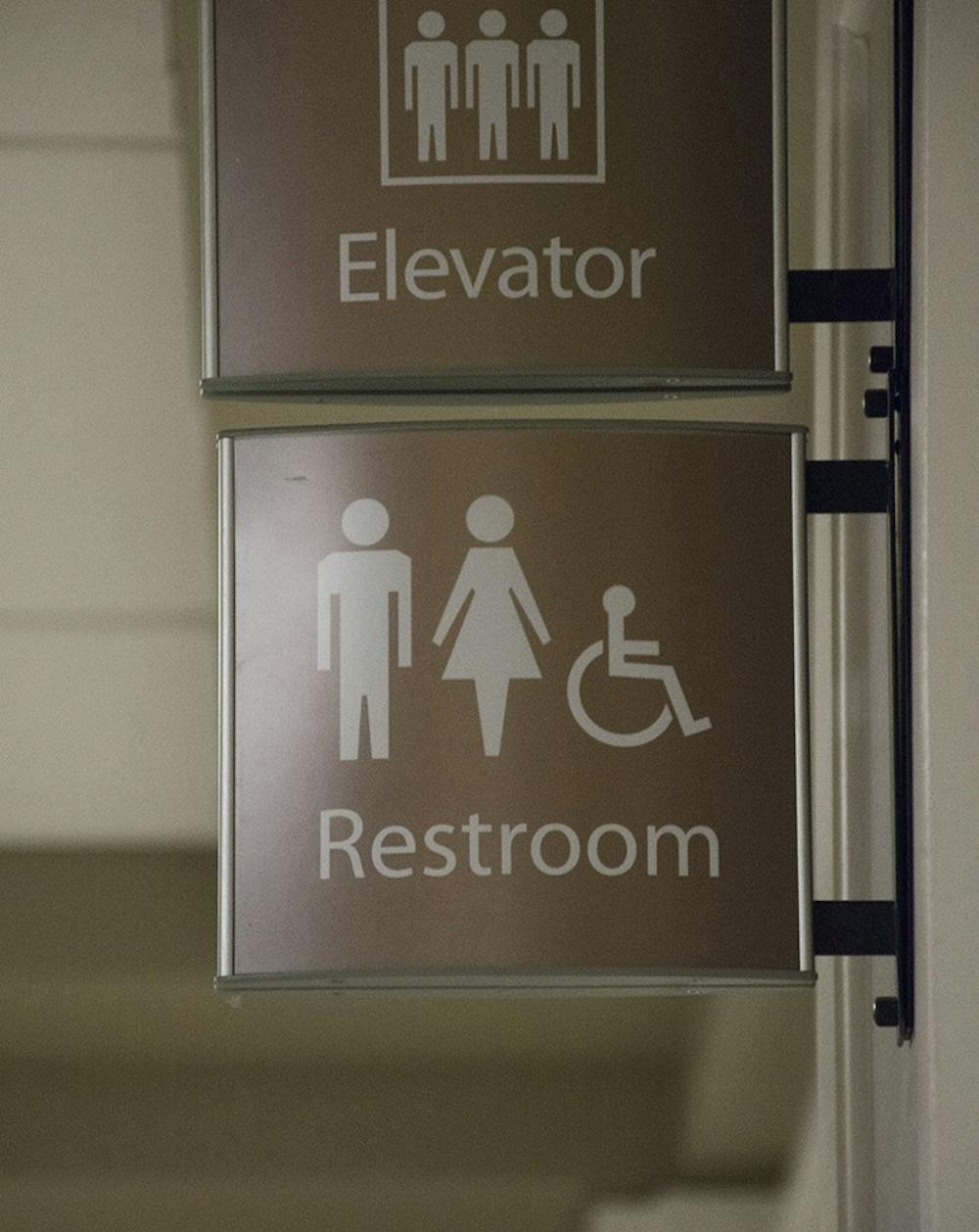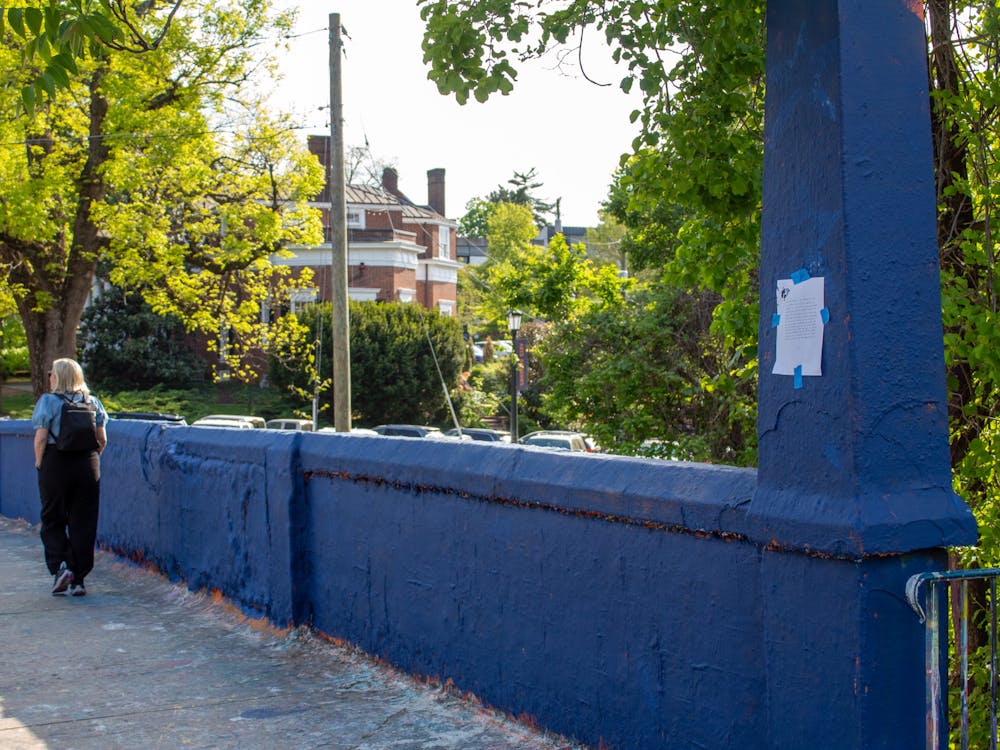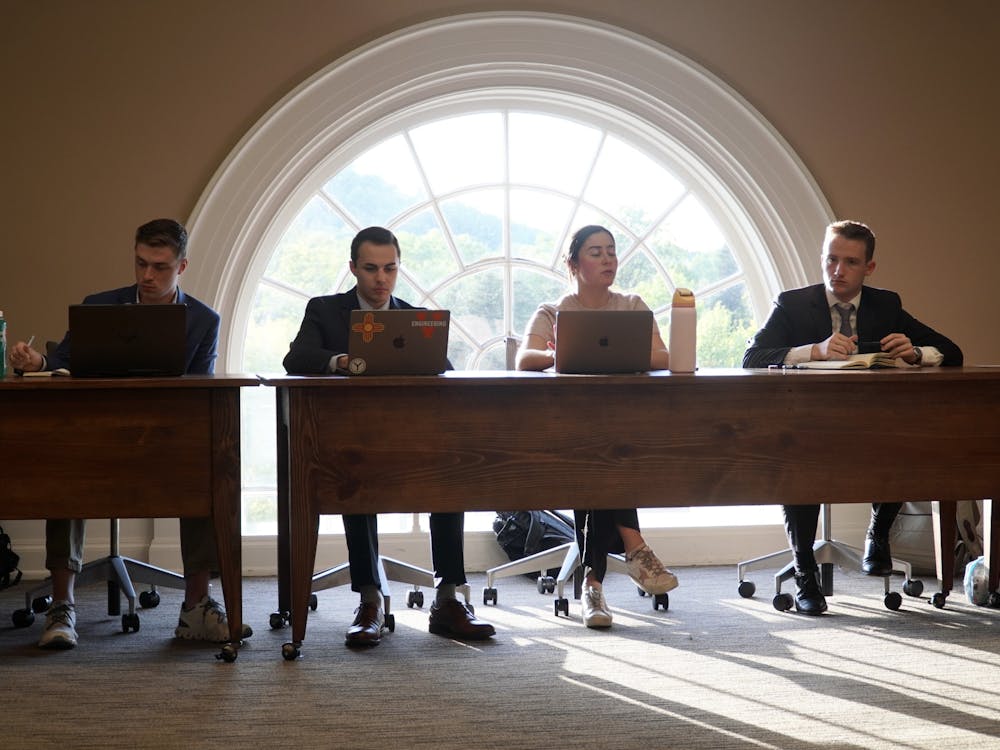Virginia House Bill 781, which would require people to use public restrooms according to their “biological sex,” passed a Virginia House subcommittee Thursday.
Del. Mark Cole (R-Fredericksburg) proposed the bill, which would not affect unisex bathrooms but could prevent transgender people from using public bathrooms of the gender with which they identify.
The bill requires bathrooms in a public building “to be designated for and only used by individuals based on their biological sex” — in which the definition of biological sex is limited to “the physical condition of being male or female, which is determined by a person's birth certificate and is identified at birth by a person's anatomy” or by an amended birth certificate.
The bill also proposes a fine for anyone “who willfully and knowingly violates” the mandate.
Transgender high school students and the American Civil Liberties Union spoke against the bill, and the Family Foundation spoke in favor of the bill before it was approved 5-2 by the Republican-majority subcommittee.
Cole said the bill is in response to complaints from parents in his district and the Stafford County School Board.
“Last year there was a situation at Hartwood Elementary in Stafford, where a boy was granted permission by the principal to use the girls' restroom,” Cole said in an email statement. “Some of the girls complained to their parents, who contacted me and the School Board. The School Board reversed the principal's decision and requested that the state adopt a consistent policy on the issue.”
Cole said the bill is “common sense legislation” intended to ensure privacy in restroom facilities, but University Law Prof. Deborah Hellman said this justification is a “red herring.”
“[Saying it’s common sense] is just a way of saying, ‘I agree with it,’” she said. “There are privacy concerns on the other side, but bathrooms… protect privacy by having individual stalls. I think everybody has a concern with their privacy, but I think that concern can be adequately addressed by individual stalls.”
Hellman compared the bill to the U.S. Supreme Court’s decision in United States v. Windsor (2013), in which a section of the Defense of Marriage Act was struck down. The court ruled the federal government extended beyond its reach by defining marriage as between a man and a woman, which is a decision typically made by states, she said.
“These are decisions that are made by individual principals or maybe by the school board in a particular community,” Hellman said. “To pass a law that prohibits local school districts from doing that expresses a [particular] rejection for transgender students.”
Scott Rheinheimer, coordinator for University LGBTQ student services, said such legislation is based on false conceptions of the transgender community.
“There is really no evidence around any type of aggression or sexual violence by a trans person in a bathroom,” he said. “There’ve been times when a trans person has been attacked and sexually assaulted, but a trans person [is almost never] the perpetrator.”
While HB 781 is highly unlikely to become law, its introduction is still symbolic, Geoffrey Skelley, Center for Politics media relations coordinator, said.
“Probably something that has played a role in [the bill’s proposal] is the fact that there is an ongoing court case on the issue in Virginia — G.G. v. Gloucester County School Board,” he said. “The legislation was probably brought about because this issue [of gendered bathrooms] has salience. It has some publicity at the moment.”
In addition, the subcommittee passed House Bill 385 proposed by Del. Bob Marshall (R-Prince William County). The bill would prevent state political subdivisions from prohibiting discrimination based on sexual orientation or gender identity. The subcommittee also sent a mix of pro- and anti-LGBTQ legislation to the state’s code commission for further study, tabling it for a year.
HB 781 and HB 385 will be heard and voted on by the full General Laws Committee.
The Parent’s Foundation did not respond to requests for comment.





